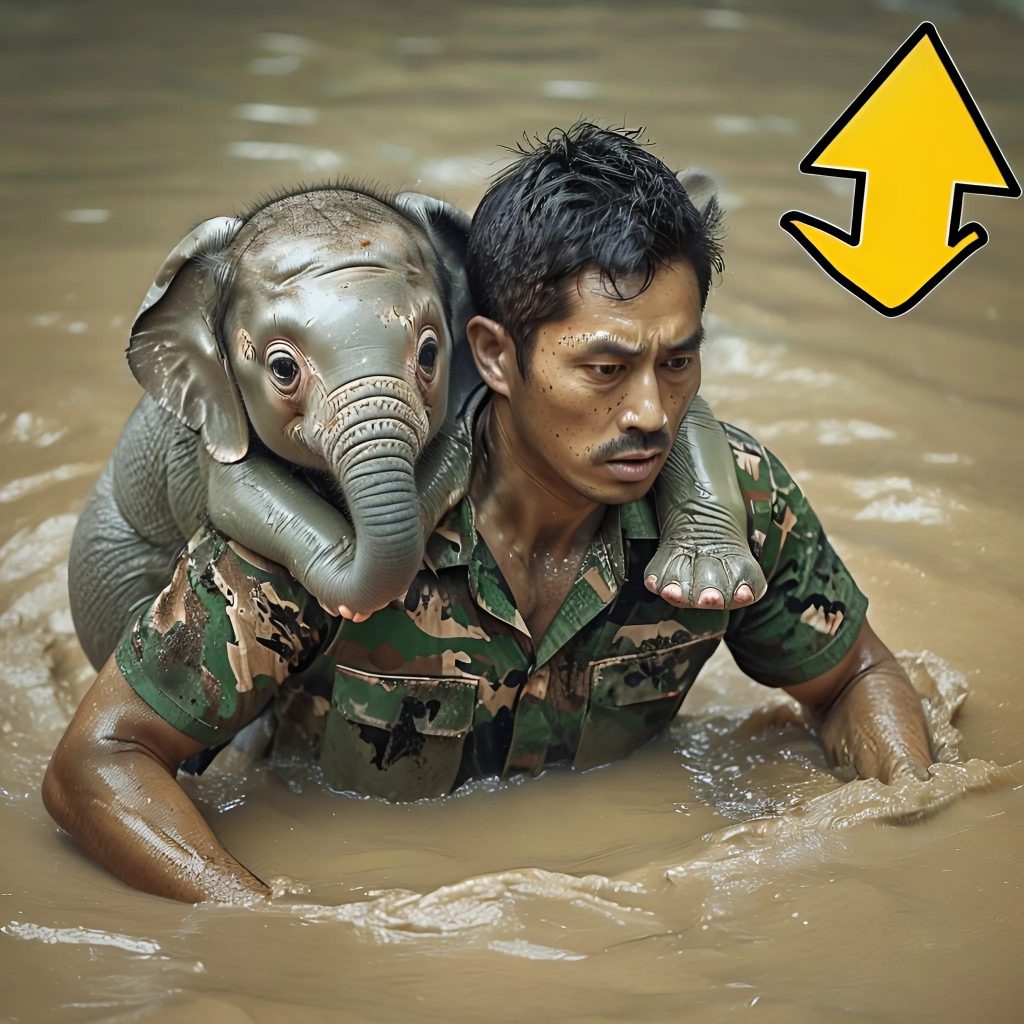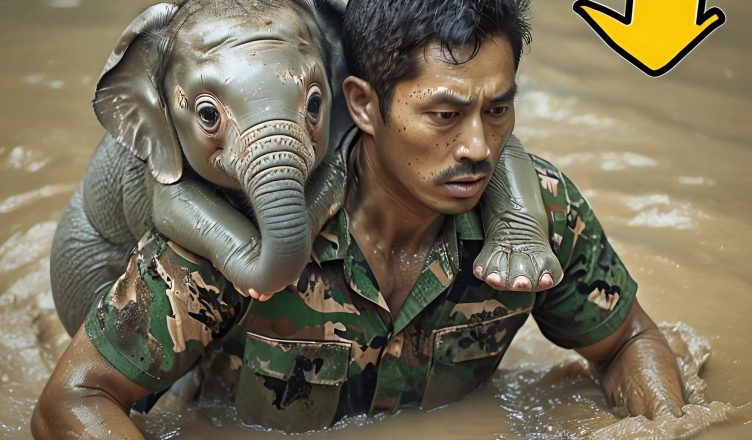Sometimes heroes don’t wear uniforms or deliver speeches. Sometimes, they’re just ordinary people who make the right choice at the right moment — without expecting praise, without thinking twice. That’s exactly what happened to Mikhail Lavrov, a biologist and conservation volunteer working in a national park in southern India. But even he couldn’t have imagined that his spontaneous act of kindness would lead to one of the most astonishing displays of animal intelligence and emotion ever witnessed.
It was the rainy season. The usually calm river that meandered through the reserve had turned into a fast-moving, muddy torrent. Most animals stayed far from the swollen banks, especially the elephants, who instinctively knew the dangers of the current. But one baby elephant, perhaps too young to understand or too playful to be cautious, slipped at the edge of the river. Within seconds, the current had pulled him into deeper water. He flailed helplessly, his trunk barely above the surface.
From a camouflaged observation post nearby, Mikhail heard the loud, distressed trumpeting of the herd. When he emerged and saw the young elephant struggling to stay afloat, there was no time to think. He kicked off his boots and jumped into the water.
The current was stronger than it looked, but Mikhail fought his way to the calf. Several times, he was pulled under himself. Still, he managed to get behind the little elephant and push him toward a cluster of roots near the riverbank. The calf latched on instinctively with its trunk. Inch by inch, with Mikhail’s help, it dragged itself out of the water.
By the time they reached dry land, both were soaked, exhausted, and shivering. Mikhail collapsed onto a rock, catching his breath. He assumed the story would end there. He’d saved the calf — nothing more, nothing less.
But nature had other plans.
The herd had been watching.
Instead of turning and disappearing into the forest as most elephants do when humans get too close, the adult elephants began to approach. Slowly. Deliberately. Silent.
Mikhail froze. He knew how dangerous elephants could be, especially when they believed a threat was near their young. But the herd didn’t charge. They didn’t trumpet or posture. They surrounded him at a careful distance. Then, the mother of the calf stepped forward.

She looked directly at him. For a long moment, neither moved. Then, in a gesture that defied explanation, she lowered her trunk to the ground — and raised it again in a slow, sweeping arc, almost like a bow. One by one, the other elephants did the same. Not a sound. Just a silent, majestic gesture of recognition.
Mikhail stood there, too stunned to move. He had spent years studying elephant behavior, categorizing social patterns and hierarchies. But no textbook had prepared him for this.
Then, just as calmly as they had arrived, the elephants turned and walked away — with the baby safe in their midst.
Later, when Mikhail returned to camp and told his colleagues what had happened, they were skeptical. But the motion-activated camera set up at the edge of the forest had captured it all. The footage was uploaded online. Within days, it went viral.
The internet exploded with reactions. People from all over the world were moved to tears. Scientists tried to explain the elephants’ behavior in terms of social bonding, nonverbal communication, and learned recognition. Others simply called it a miracle of empathy.
But regardless of interpretation, one thing was clear: this was not just a story about one man saving an animal. It was about the invisible threads that connect living beings — human and animal alike.
Mikhail received international attention. He was invited to speak at wildlife conferences and interviewed by media outlets from five continents. Yet, he never called himself a hero.
“I didn’t think about cameras or headlines,” he said. “I saw a life in danger. That was enough.”
Today, that same baby elephant is thriving. Park rangers recognize him by a distinctive mark on his ear. And every time Mikhail enters the area, the young elephant approaches first — never in fear. He stands tall, offers his trunk gently, like a handshake.
In a world where people often speak of division, destruction, and cruelty, this story spread for a different reason. It reminded us that compassion knows no language. That sometimes, the wild shows us how to be more human. And that gratitude — true, unspoken, unforgettable — may just be the most powerful force in nature.
